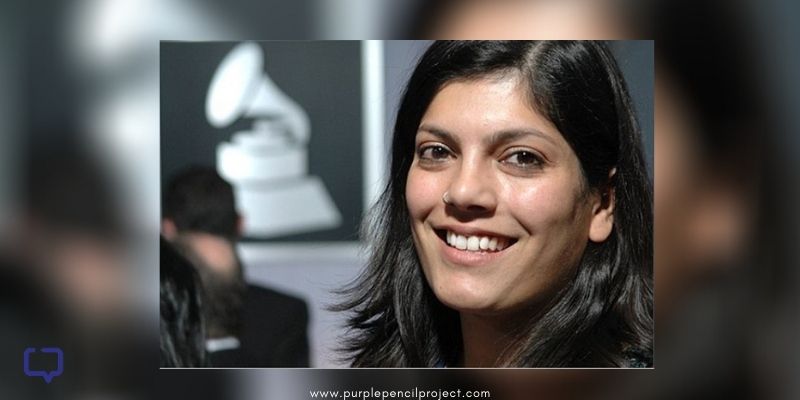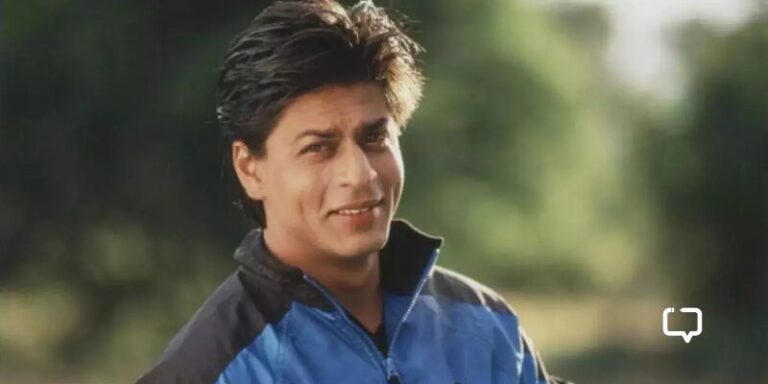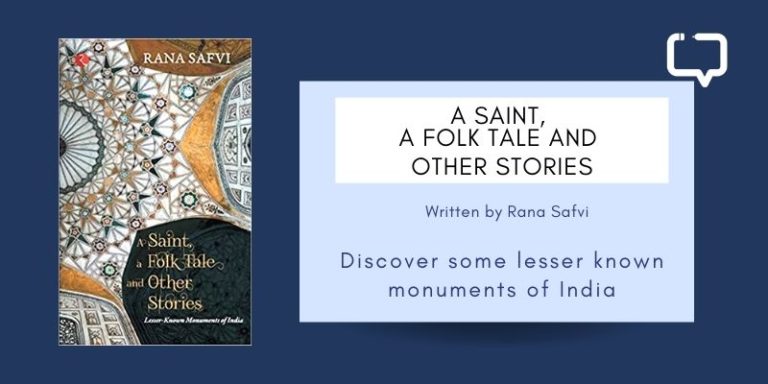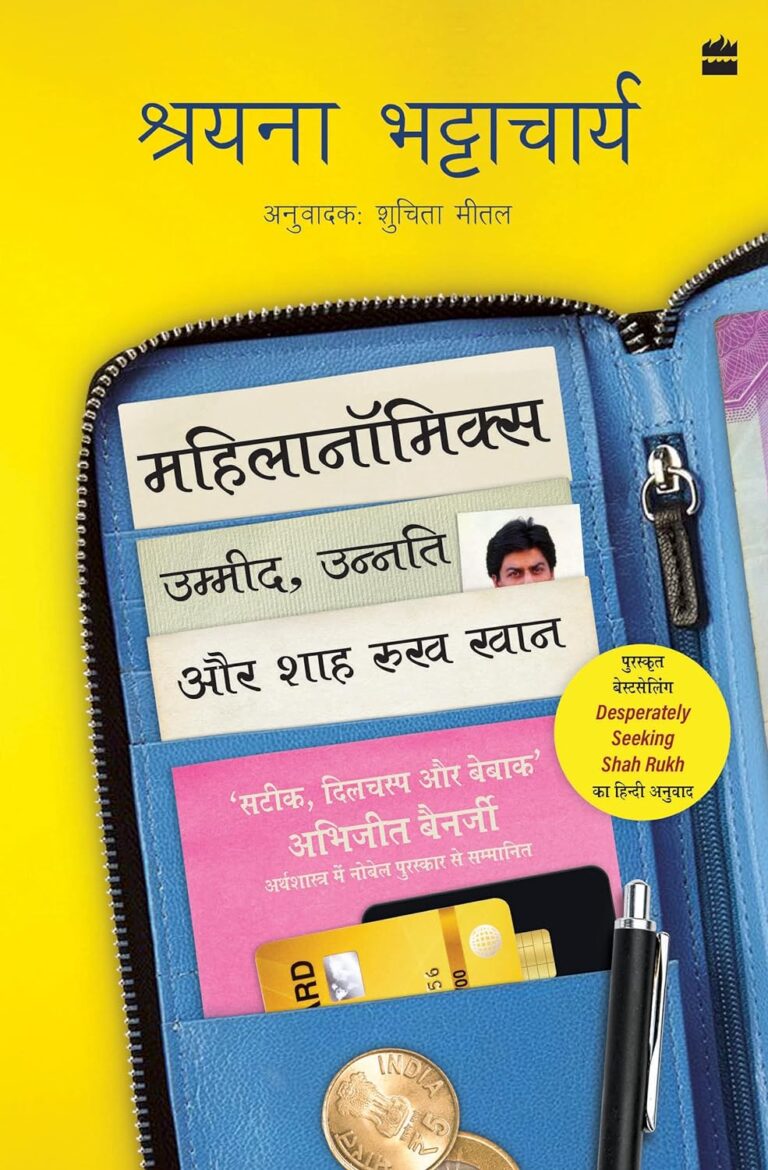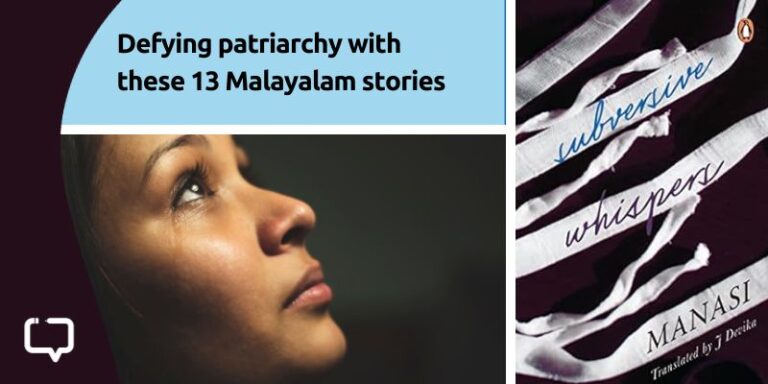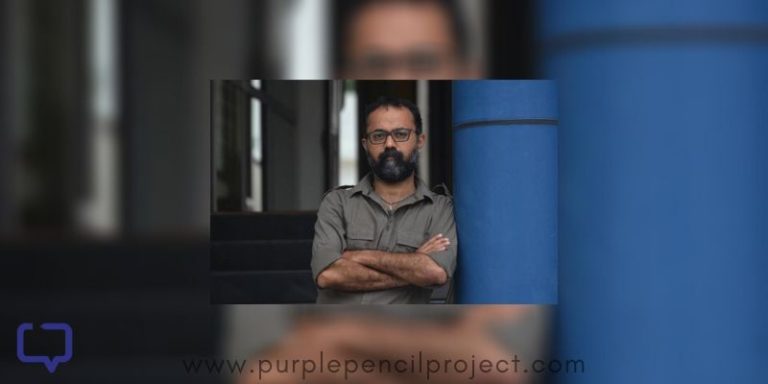Amrita Tripathi is a novelist, and collector of identities. She is passionate about gender rights and about raising awareness on mental health issues. She writes contemporary fiction — both her novels Broken News and The Sibius Knot deal with the darker side of urban realities. Her passion project is The Health Collective, and encouraging conversations on mental health.
Q. As a writer, how has writing about mental wellness changed for you? When did you start interacting with the subject, and how did you learn to write about it?
Did you have to go through a learning curve when using sensitive language? What was it like?

Amrita Tripathi:
When I started writing about mental health way back when, it was more as a reporter for a news channel, so our scripts were intended for TV news – the language was matter-of-fact and the pieces were short, to the point and always with a news peg and featuring a ‘case study’.
Over the last decade or so I’ve learned more on the subject and certainly since I set up the Health Collective, I’ve learned to center the narrative around lived experience.
I daresay I’ve learned something through each interview, including say, interviewing Dr. Vikram Patel a few years ago and having it brought home to me that we conflate Mental Health with Mental Illness (everyone has Mental Health).
I think through each conversation or when reading stories of lived experience, I’ve learned to be more sensitive about triggering language and oh yes, absolutely to stop seeing people as case studies! Each person has their own story, their own journey and no one is under any obligation to share that or to share more than they want to.
Q. What are some of the tips you would like to give younger writers in writing responsibly about the subject?
Amrita Tripathi: When it comes to tips to share with younger writers, I would highlight the importance of empathy and start the most important one: Do No Harm. We recently posted a short video and shared 5 Tips on our site which I’m happy to share here for your readers:
1. Remember, first, to do no harm :
- That means no sharing confidential info. This is non-negotiable
- No stigmatising
- Refrain from judgement
- Mind your language – words hurt
2. A little empathy goes a long way
Hard to think through? What if the person/ celebrity/ case you’re commenting on was your best friend? Your close relative? You? Would that change your attitude/ perspective?
3. Do you have lived experience or first-hand knowledge of what you’re talking about?
If Yes, then do share as much as you would like
If No, are you commenting as an educated by-stander or with expertise? It’s helpful to provide that context up front
4. Have you read or educated yourself on either the condition you’re talking about? OR the case you’re talking about?
If Yes, then do share with as much context as you can share
If No, then that’s a clear next step. It’s also ok not to have a comment/ opinion/ hot take
5. Are you helping to demystify a subject that is still very taboo? Are you helping clear up myths/ misconceptions? Or are you perpetuating them?
Examine your own biases and pre-conceived ideas
What is Empathy? How is it different from Sympathy?
Watch this video by Brene Brown that explains further
Q. Mental health portrayal in popular culture – film or literature – has not always been in kind, encouraging and responsible light. Are there books that have got it right, across any of the languages you read in?
Amrita Tripathi: This is such an important point you raise.
One Flew Over the Cuckoo’s Nest by Ken Kesey left an imprint on my soul, I think, from when I read it as a child. I’ve also found some of these profoundly moving and would highly recommend them: Darkness Visible: A Memoir of Madness by William Styron, How to Travel Light by Shreevatsa Nevatia and The Schizophrenist by Reshma Valliappan also made a huge impact. I found The Seven Imperfect Rules of Elvira Carr by Frances Maynard also to be a delightful read.
Q. Could you tell us about yourself as a reader – which books influence you, your favourite genres, authors? What kind of books did you grow up reading?

Amrita Tripathi: I love this question! Apart from the Famous Fives and Tintins and Asterixes, we had two beautiful collections my father gave us when we were small which I always loved – one on the Arabian Nights, and one on fairy tales – I daresay both influenced my taste in speculative fiction as I grew up (though not surprisingly our Encyclopaedia Britannica set didn’t leave quite the same stamp)! Childhood favourites include those two collections, our children’s editions of A Tale of Two Cities and other classics, A Wrinkle in Time by Madeleine L’Engle, Pride and Prejudice by Jane Austen, the Narnia series and The Lord of the Rings.
I’m lucky that I come from a family of readers so there was never any question of restricting what we read. I read a lot of Calvino and Kundera and Kafka in college and I have to say one of my favourite authors of all time even today is Neil Gaiman. I do read more non-fiction these days, but my heart will always beat for what we used to call “story books”.
Q. What inspired you to write a non-fiction series on the experiences around mental health and not stand-alone titles? Did you have to conduct additional research to write about this? How do you research on experiences that you may or may not necessarily have had?
Amrita Tripathi: I set up the website The Health Collective four years ago, to help share credible information on Mental Health and Mental Illness from an Indian lens, as well as to help share publicly available resources and make them accessible.

I wanted to use my skill set and network as a journalist to focus on this important area, which has been under-served by traditional media. So… it slowly became clear that not only is there a readership, but also that there are many people who want to share their stories and think it will help others, if they do so.
The book series seemed like a natural progression, in a way. A few years ago, while talking to Himanjali Sankar at Simon & Schuster India, we came up with the idea the Mindscape series, which I co-author with leading psychologists, to help demystify some of these topics and approach them in a more conversational manner.
It’s ambitious and even seems a bit audacious to just decide to do these books, but given the sort of discourse we see, I think it’s more important than ever to share compelling stories and information to combat all the myths and misconceptions. We don’t want to talk down or lecture readers, so the tone has been more friendly and conversational.
We have been able to center the narrative around lived experience and have showcase very varied first-person accounts on living with Depression for example, in Real Stories of Dealing with Depression, which help people know they’re not alone, and also combat stereotypes and stigma, thanks to some very brave contributors!
But to answer your question more cogently, yes absolutely, I had to do more research and do my homework, even while teaming up with psychologist and therapist Arpita Anand for the title on Depression, and psychologist Meera Haran Alva for the second book in the series on Young Mental Health. I relied on interviews, e-interviews, and written submissions from contributors to describe their experiences for a wider readership, while aiming to be quite sensitive with follow-up questions and in the editing process. I suppose readers will decide how successful we’ve been!
Q. In your fiction, ‘The Sibius Knot’, too, there are themes of sexual abuse and drug overdose. What is the difference in writing for these related themes/topics in fiction and non-fiction?
a. Was a similar or different research approach involved in writing fiction?

Amrita Tripathi: The Sibius Knot follows a group of friends -maladjusted misfits, dealing with broken relationships, drug use, a cult-like figure, juxtaposed with the sort of hectic pace of life in a city like Delhi, that can be such a brutal awakening to outsiders! The story follows the friends as they are young adults making their own way in life, and dealing with a series of revelations, including the death of loved ones.
While I would say some of my reporting helped inform some of the themes in my writing (nothing like being a reporter/ news anchor to expose you to bleak and difficult topics many of us would rather not talk about), and I ran a few scenarios past therapists like Arpita Anand, I also looked at drug use and what happens hypothetically when you fall through the cracks – people get uncomfortable and prefer to check out of relationships like this, don’t they…Whereas if you have the safety net of solid relationships and friendships, you have a much better chance of surviving.

I was curious to see if I could tell this story in a way that mirrors how they sort of crack up. At the core of this story though is the redemption possible through having your own tribe (even if you / we are all misfits!) and people who ‘get’ you, when others don’t, as well as the transformational power of love (not just romantic love).
While I think the novel touches upon many truths, it’s a vastly different approach from the non-fiction series, which is a mix of interview-based story-telling, research-based information and first-person accounts on living with a mental health condition or disorder. As well as story-telling via comics! And of course, with the non-fiction, I wouldn’t make things up just to follow the characters on their journey!
Q.What are some lifestyle choices and habits you follow for your own mental wellness? Does it not get emotionally draining to write about it? How do you find the balance?
Amrita Tripathi: It can be quite tough, and I think I need to have a buffer in place (and remind myself to do so). I sometimes need to learn to log off, as it were. The thing is, there are so many things that need to be addressed when it comes to mental health/ illness in India, that you can lose yourself sometimes. For my part, luckily, I also have some great friends who are counsellors and therapists who are just a call or email away! A few of them act as informal advisers on the site, so for example with complicated issues, I ask for more structured guidance.
As I get older, I find that we need to seek out things we love doing just for ourselves, to recharge and regain emotional balance. That could be taking a walk in the park, chatting with a loved one, ‘gardening’ in my case (though it’s potted plants rather than a garden that I’ve been obsessing over)…and of course if you love books, reading, and tuning out the world. These are all things I do with varying levels of success. Also meditating when I can.
We encourage you to buy the book from your local bookstore as far as possible. If not, please use the links above and support us. Thank you.







